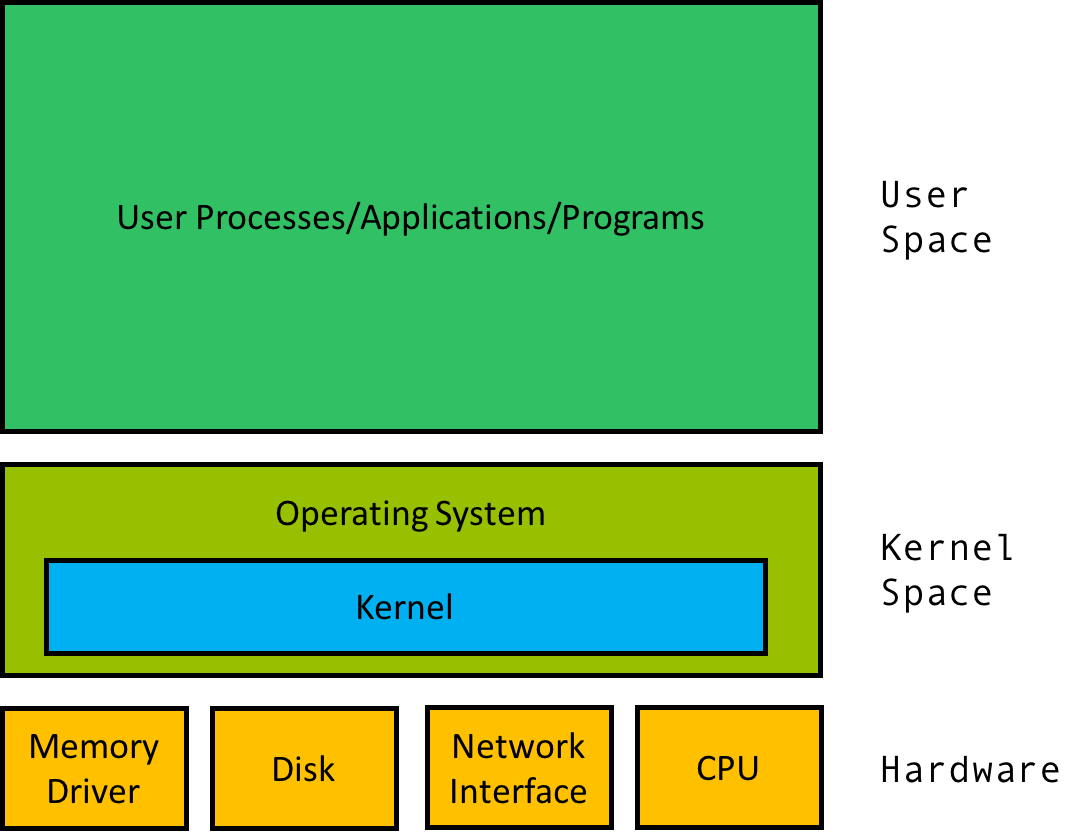It is a system program that provides an interface between the user and the computer, as it manages the hardware and software running on it.
There are several different computer programs running at the same time that need access to your CPU, memory, and storage, so the OS coordinates all this to make sure that every program gets only what it needs.
A kernel is the core component of the operating system.
It's the first program of the operating system that is loaded into the main memory and remains in memory until the system is shut down.
The kernel acts as a bridge between the applications and the hardware, as it directly communicates with the hardware.
The Linux kernel was created by Linus Torvalds, one of the greatest developers.
In 1991, Linus Torvalds, a young Finnish computer science student, released the first version of the Linux kernel, a core component of the GNU/Linux operating system. Unlike proprietary operating systems like Windows or MacOS, Linux was open source, meaning anyone could view, modify, and distribute the source code. This open model of development attracted a community of developers who contributed their time and expertise to improve the software.
Keep in mind that there is a difference between Linux as an operating system and the Linux kernel. Linus only created the latter; the former was created in collaboration with the GNU project and Linus.
GNU is an acronym for: GNU’s Not UNIX. The founder of this project is a software engineer and researcher named Richard Stallman.
The release of the GNU project in 1983 was marked as one of the key events in the history of open source. The project aimed to create a free Unix-like operating system, and laid the groundwork for the free software movement. Stallman's philosophy of software freedom—freedom to use, study, modify, and distribute software— inspired a new generation of developers who believed in the power of open collaboration.
| Intended Use Case | Distribution |
|---|---|
| Usual users | Ubuntu - Pop OS! |
| Developer | Fedora - Ubuntu |
| Artists & Music Producers | Ubuntu Studio |
| Corporate Organizations | Red Hat Linux - Fedora |
| Cyber Security | Kali Linux |
